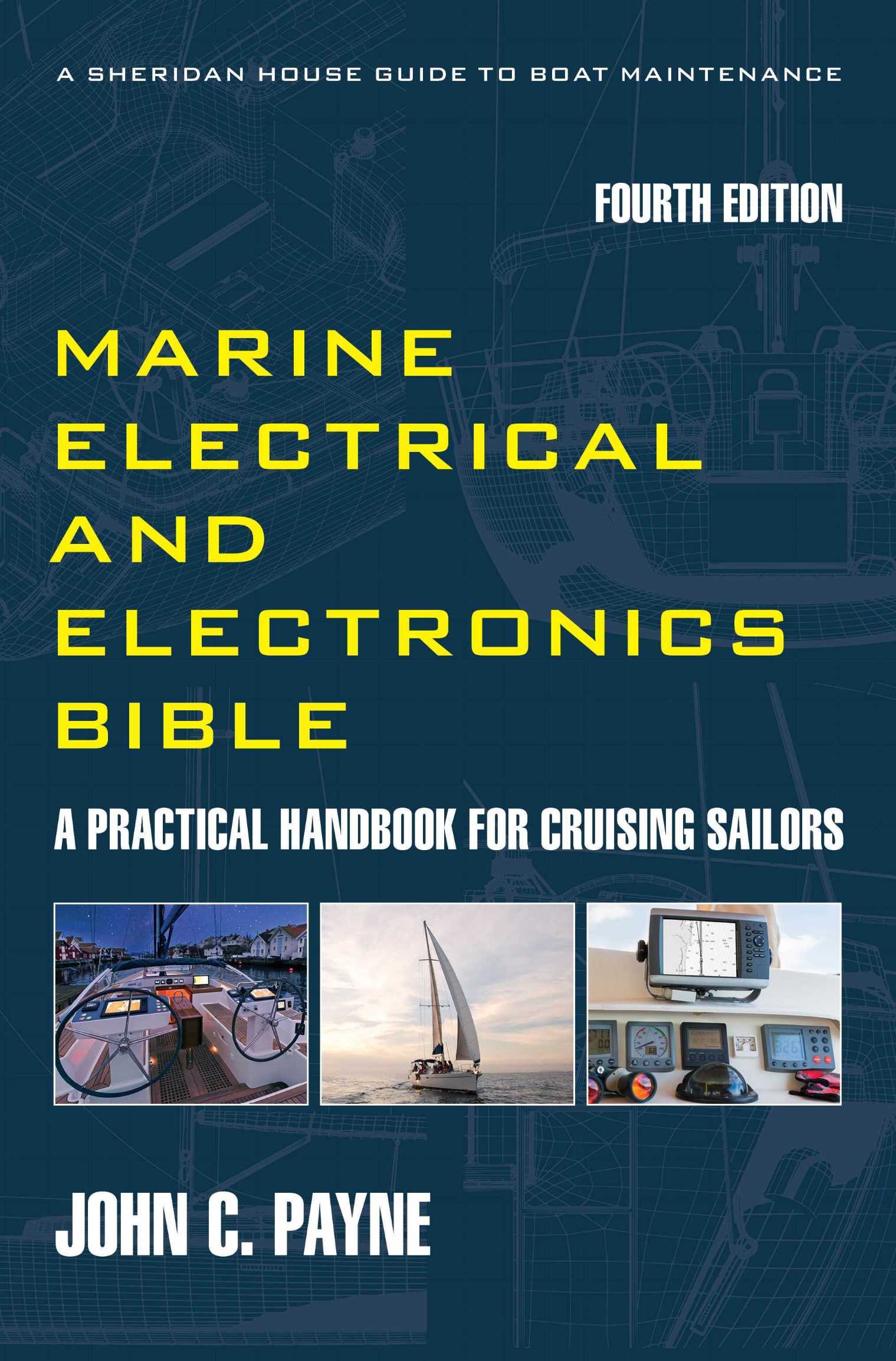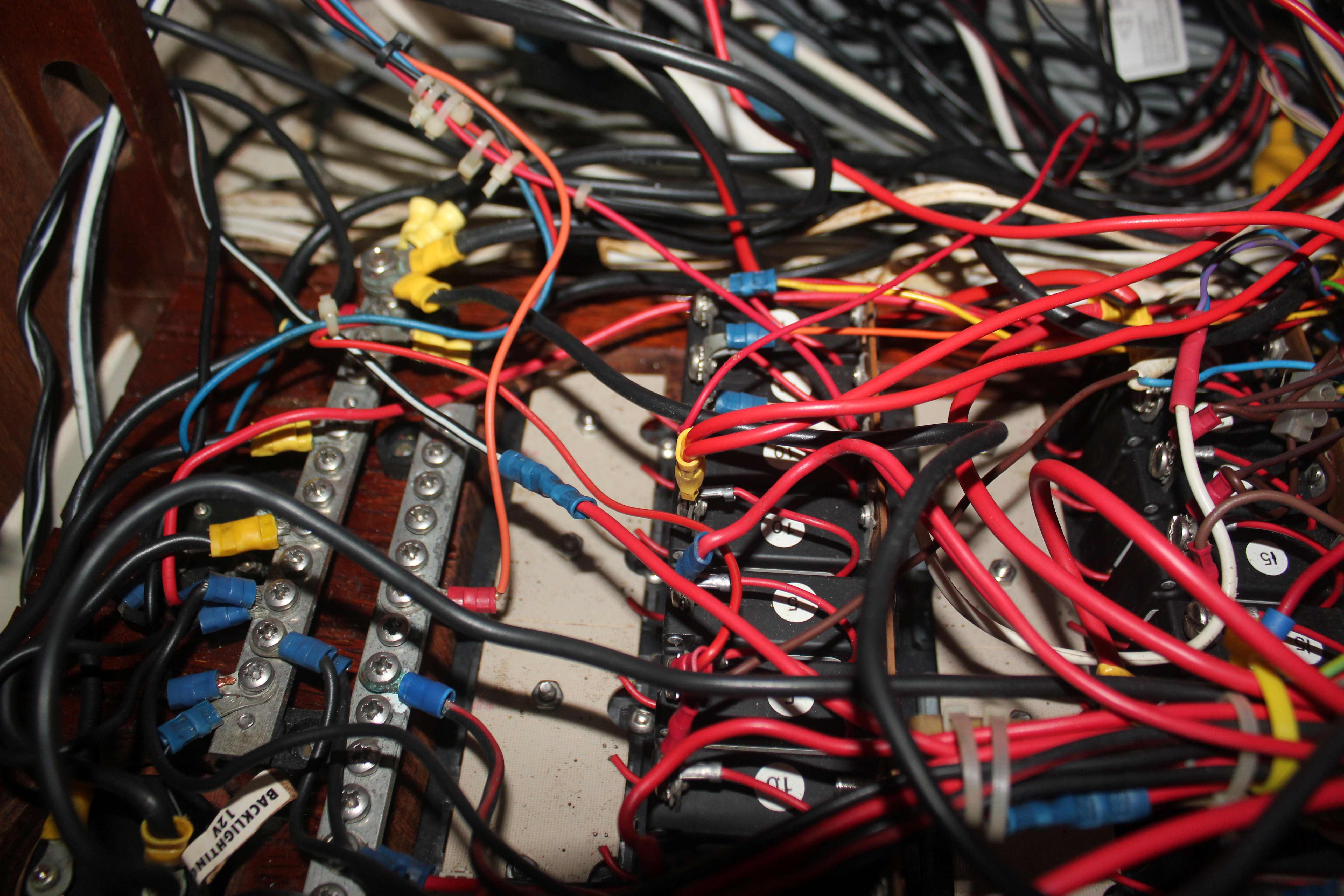Marine Electrical Courses Online Wiring
Marine Electrical Courses Online
Wiring is an essential part of systems reliability. At the completion of this subject module,
you will understand the application of Wiring Rules and Recommendations; How to
plan electrical systems, perform load calculations, select cables, calculate
voltage drop; select the required protection systems (fuses and circuit
breakers). You will understand wiring installation practices, panels and
switchboards, metering and grounding, and how to perform basic maintenance and
troubleshooting on all boat wiring systems.
When it comes to boat electrical systems, good planning revolves around attention to detail and there is a logical sequence for determining the various parameters. You need to plan carefully before changing or upgrading boat wiring. Questions of failure modes and the provision of redundancy within the circuit design are also essential. This may entail the installation of dual alternator charging systems, the separation of starting and charging systems, and provision of backup supplies and splitting loads into dual circuits. Every boat-electrics system should have a "Plan B" built into the design.
The Marine Electrical and Electronics
Bible – 4th Edition
The Marine Electrical and Electronics Bible has a big section on wiring. In general, many boats fail to understand or install wiring according to basic codes and practices. The connections and terminations that keep this all together are a major source of breakdowns and failures.
7. DC Systems Wiring; DC Systems Wiring. DC Wiring Failures. Wiring Regulations and Standards. Boat Wiring Regulations. Boat Wiring Regulations USA and Canada. Boat Wiring Regulations UK and Europe. Boat Wiring Regulations Australia and New Zealand. 12 Volt Systems. 24 Volt Systems. 32 Volt Systems. 42 Volt Systems. 48 Volt Systems. DC Voltage Conversion. Boat Wiring Diagrams. Wiring Considerations. Wiring Configurations. Distributed Systems. Voltage Segregation. Modular System Controllers. Switchboard Circuit Control and Protection. Switchboard Construction. Voltmeters. Ammeters. Integrated Monitors. Battery Monitors. Marking and Status Indication. Switchboard Cable and Wiring Installation. Circuit Protection. Switchboard Feeder Protection. Battery Connected Equipment. Navigation Light Protection. General Circuit Advice. Fuses. Circuit Breakers. Switchboard Troubleshooting. Conductor Selection. Voltage Drop. Wiring Installation. Grounding Systems. Conductor Termination. Circuit Testing. Circuit Testing. Mast Cabling. Mast Cable Troubleshooting. You can buy your copy The Marine Electrical and Electronics Bible 4th Edition here.
Marine Electrical Courses
Online Wiring
Introducing needless complexity into electrical systems is unfortunately common and unnecessary. When you buy a boat, you have to start with what is installed, and in most cases, you inherit something you don’t like. Legacy wiring systems are generally a mess of undocumented modifications. It is common to see installations that are in effect test beds for a yacht owner’s own application of ideas and theories, and a voyaging yacht is the last place to be experimenting. The most reliable yachts have simple systems designs that exclude complicated switching, systems interlocks and unnecessary automation. Accepted design principles are available from the ABYC and others that consider reliability and failure as basic parts of the rule and recommendations philosophy. What are the various wiring rules in use around the world, and which do you use. Learn about boat wiring here.
Marine Electrical Courses Online
Wiring
Reliability depends on sound design and planning, and is worthless if the proposed equipment is not up to a good standard. The old adage of "the poor man always pays twice" is very true when it comes to yachts. Cheap lights, switches, circuit breakers, and other "bargains" often end up failing after short operational lives. When you buy a boat, you often end up with another person’s problems. The overall percentage costs of electrical equipment as a portion of the entire boat costs are relatively small. It is important to purchase and install the very best equipment that you can find or afford. Select equipment that is marked with the various approvals for marine use and those rated for the maximum environmental protection ratings. Always select tinned copper cable, the initial extra cost is worth the savings in long term reliability. Most boats and many new boats now have tinned copper. It is hard to believe that some so called “experts” advocate that tinned copper wiring is a waste of time and money which is baffling and indicates a lack of competency and proficiency
Marine Electrical Courses Online
Wiring
Wiring and equipment must be properly installed if they are to stay operational. The layout of equipment must consider environmental factors such as exposure to spray and water. This installation layout should also consider cable routes with respect to these factors, along with minimizing exposure to mechanical damage. Where possible the cable runs should be made as short as possible, not just for limiting voltage drop but to reduce interference either into other cables or from other cables. Some advocate and still encourage the installation of single insulated automotive type wiring. Choose the insulated and sheathed for added mechanical protection.
Marine Electrical Courses Online
Wiring
Good wiring practices consider the segregation of high and low power equipment cables from data and signal cables. Given that some 85% of failures are directly attributable to failures in connections, performing as few as possible, and ensuring they are properly done is an investment in reliability. Those connections exposed to water such as bilge pumps should be properly made and sealed. Where connections must be made, they should be in a quality junction box to protect against water. Where cables pass through decks or bulkheads they should transit through cable glands. Electrical systems can be summarized in one concise statement, "Do it right, and do it once!"


